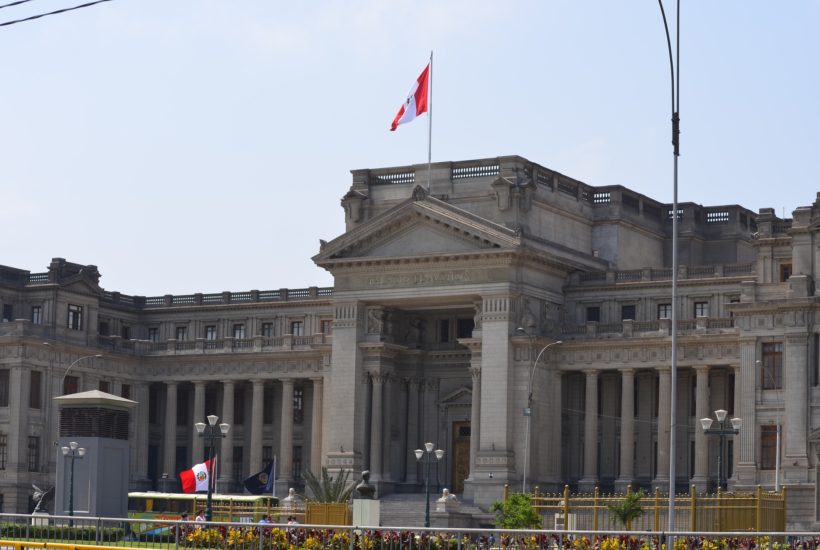Crowdfunding
Peru advances in the regulation of the crowdfunding sector
The regulation of the crowdfunding market in Peru is advancing. A resolution was issued in April to allow companies already active in the crowdfunding sector continue their operations. There were five companies that took advantage of the SMV standard since they had been carrying out crowdfunding activities. By the end of the year the new regulation should be ready.

Before the end of the year, the regulation for crowdfunding, known for its mechanism of collective participation for financing, should be ready in Peru, said Carlos Rivero, assistant superintendent of Research and Development of the Superintendence of the Stock Market (SMV).
As recalled at the beginning of the year, Emergency Decree 013-2020 was issued for the financing of MSMEs, startups, and entrepreneurship, which establishes that the SMV will issue the complementary rules for its application.
In this regard, Carlos Rivero explained that in order to ensure the operability in the market with companies that were already carrying out this type of operation, through the participatory financing platforms, a resolution was issued (Resolution 005-2020-SMV) on April 22nd.
“The idea was to assure in the market the platforms that already had operations, in this case, they made loans, not equity or other operations, so a safe-conduct was given to the companies,” expressed at the Latin Forum Fintech, organized by Emprende UP.
If you want to find more details about the advances regulation of the crowdfunding sector in Peru and how crowdfunding platforms will have to operate in the country download for free the Born2Invest mobile app. Our companion app brings you the latest financial headlines in the world for you to stay informed.
Five companies already took advantage of the SMV standard
Based on this, five companies were the ones that took advantage of the SMV standard since they had been carrying out these activities, in order not to affect operations.
As a complement, the MVS asked the companies if they had business continuity plans, internal regulations, default indicators, among others, in order to know how far they were from the D.O.D. or would be when the complementary standard was issued for the adaptation period.
“In addition, they were asked to reveal the risks they carried, in order to know how flexible the norm could be,” he detailed.
On the other hand, in this regulatory process, Carlos Rivero mentioned that many questions were raised as to whether the norm applied to crowd factoring, the discount platforms for bills of exchange, being the biggest doubt in this process, but it was specified that such operations were not contemplated in the Emergency Decree, since they already had a regulation in force.
What is coming next for the crowdfunding sector in Peru
Carlos Rivero detailed that in one month the first project should be issued for public consultation in the market:”This is a project that has been supported by the World Bank to understand comparative legislation,” he said.
In that way, details such as the minimum capital limitation that this type of platform must have, investment limits, operation amounts, must be reported to the SMV.
Also, whether or not the crowdfunding platform will be able to carry out complementary activities and how the risks will be dealt with in different scenarios.
The representative of the SMV indicated that complementary information has been received in recent days that will contribute to the analysis for the development of the crowdfunding platform.
__
(Featured image by dragondeluz via Pixabay)
DISCLAIMER: This article was written by a third party contributor and does not reflect the opinion of Born2Invest, its management, staff or its associates. Please review our disclaimer for more information.
This article may include forward-looking statements. These forward-looking statements generally are identified by the words “believe,” “project,” “estimate,” “become,” “plan,” “will,” and similar expressions. These forward-looking statements involve known and unknown risks as well as uncertainties, including those discussed in the following cautionary statements and elsewhere in this article and on this site. Although the Company may believe that its expectations are based on reasonable assumptions, the actual results that the Company may achieve may differ materially from any forward-looking statements, which reflect the opinions of the management of the Company only as of the date hereof. Additionally, please make sure to read these important disclosures.
First published in LR, a third-party contributor translated and adapted the article from the original. In case of discrepancy, the original will prevail.
Although we made reasonable efforts to provide accurate translations, some parts may be incorrect. Born2Invest assumes no responsibility for errors, omissions or ambiguities in the translations provided on this website. Any person or entity relying on translated content does so at their own risk. Born2Invest is not responsible for losses caused by such reliance on the accuracy or reliability of translated information. If you wish to report an error or inaccuracy in the translation, we encourage you to contact us.

-

 Business1 week ago
Business1 week agoDow Jones Near Record Highs Amid Bullish Momentum and Bearish Long-Term Fears
-

 Africa6 hours ago
Africa6 hours agoCameroon’s Government Payment Delays Exceed 200 Days, Straining Businesses and Public Finances
-

 Crowdfunding1 week ago
Crowdfunding1 week agoThe Youth Program at Enzian Shooting Club Is Expanding Thanks to Crowdfunding
-

 Crypto3 days ago
Crypto3 days agoTariff Turmoil Sends Bitcoin and Ethereum Lower as Crypto Markets Face Mounting Pressure
























